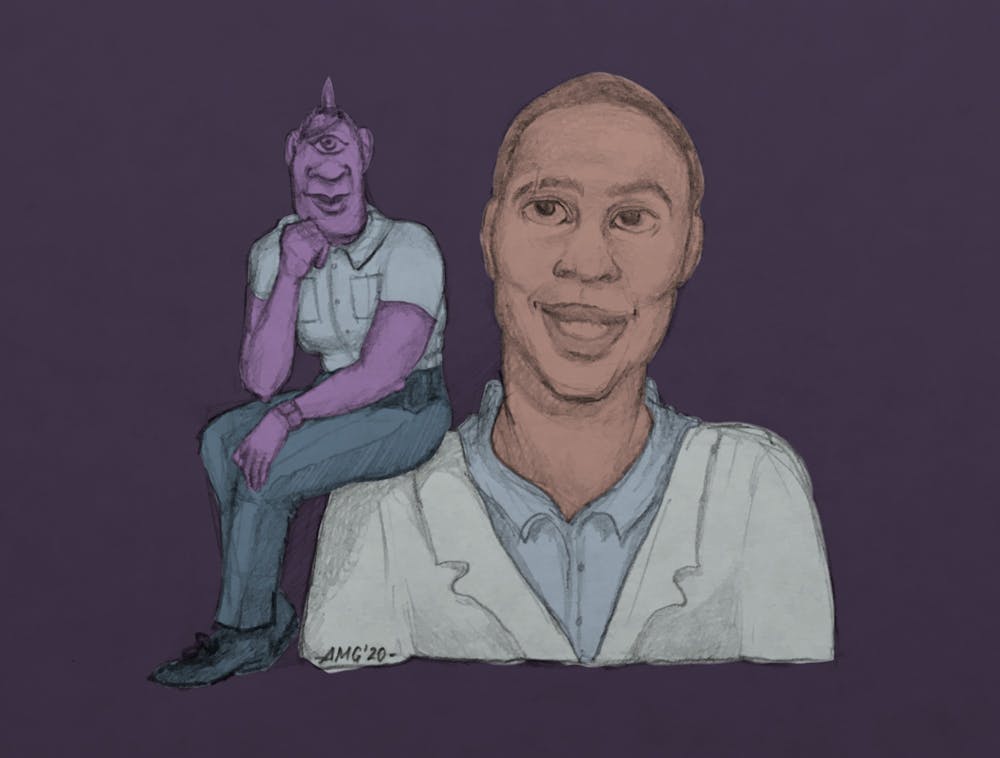Disney has claimed to have their first gay characters numerous times, each to varying levels of outwardness, representation, and validity. First, it was LeFou in the live adaptation of Beauty and the Beast who did little more than dance with a man in an ensemble scene at the film’s close. Next, it was through Cyrus Goodman on Andi Mack, who was the first of Disney’s characters to say “I’m gay” on–screen. Now, Disney has garnered headlines again with a character in the upcoming film Onward, voiced by Lena Waithe, who, apparently, is the first out gay character in a Pixar film.
At first glance, the meeting of a new milestone for Disney is appreciated. LeFou was a minor character, a villain, and not explicitly gay—all he did was dance with a man. While Cyrus is important representation for young people, a Disney Channel original television series is quite different from a movie that will reach more audiences. Waithe’s character, Officer Spector, will be the first outwardly gay character in a Disney major motion picture. It's particularly nice to see a lesbian portrayed since gay men remain far more represented than gay women. Waithe is also a lesbian herself and a staunch advocate for LGBTQ rights, giving audiences high hopes for her part in the movie.
However, immediately after the news broke, criticisms began to roll in from various social media outlets, primarily Twitter. Firstly, Officer Spector is obviously a cop, which by itself is a point of contention. While it may seem silly to critique the profession of a fictional character in a Disney movie, having a member of a community often targeted by law enforcement play a law enforcement official doesn't sit well with LGBTQ audiences. Violence against LGBTQ people, beginning with Stonewall and continuing to the excessive violence against trans women by police today, makes the portrayal of gay people as police questionable at best.
Second, the hype around Waithe’s character is another instance of Disney overexaggerating its work. According to early screeners’ reports, Officer Spector's scene is brief. All she says in regards to her sexuality is “My girlfriend’s daughter got me pulling my hair out,” though apparently this line is unimportant to the scene. On one hand, not all gay representation to be about flashy, punchy moments. We also don't need every character to have a coming out scene—an important aspect of representation is a portrayal of a gay person whose entire personality doesn't revolve around them being LGBTQ. The problem is that, yet again, Disney has claimed they are making amazing strides for the LGBTQ community by daring to put these kinds of characters before large audiences, when in fact, the depiction is blink–and–you–miss–it.
Thirdly, in an animated film like Onward, the character Waithe portrays seems to stand out in terms of character design. All of the other creatures around her are relatively humanoid, but only Spector has a troll–like look as the cast's only cyclops.
A common rebuttal to criticisms around the character design of Officer Spector is that it's a fantasy movie, so of course characters are going to have outlandish looks. The main leads of the film, voiced by Chris Pratt and Tom Holland, are both blue elves. Another character is a faun. Clearly, these designs don't seek to replicate reality. However, the counterpoint is the way lesbians are represented in Onward don't exist in a vacuum. The choices to have her taller, one–eyed, and with larger lips make Spector seem more masculine and less human in comparison to the rest of the cast. The othering of this person who is supposed to be a great source of representation is questionable—why not have her be the same height as everyone else? Certainly character design needs diversity, but the choice of having the part of the only lesbian to be coded as more masculine raises eyebrows.
Ultimately, children’s movies have a greater responsibility to portray diversity with care. If kids see Officer Spector as ugly and masculine and the character is clearly stated to be a lesbian, the connection between those two concepts may stick. This is particularly harmful, especially with the public often seeing lesbians as more manly and aggressive. Such associations formed in our youths are important throughout our lives—people still associate the Russian accent with mad scientists and villainy because of the kinds of cartoons we watched as kids. We should hold Disney to a higher standard than most, as one of the most influential media companies currently in business. Though the exact portrayal of Officer Spector is yet unclear, audiences should not expect her part in Onward to be a great step forward for LGBTQ representation.

